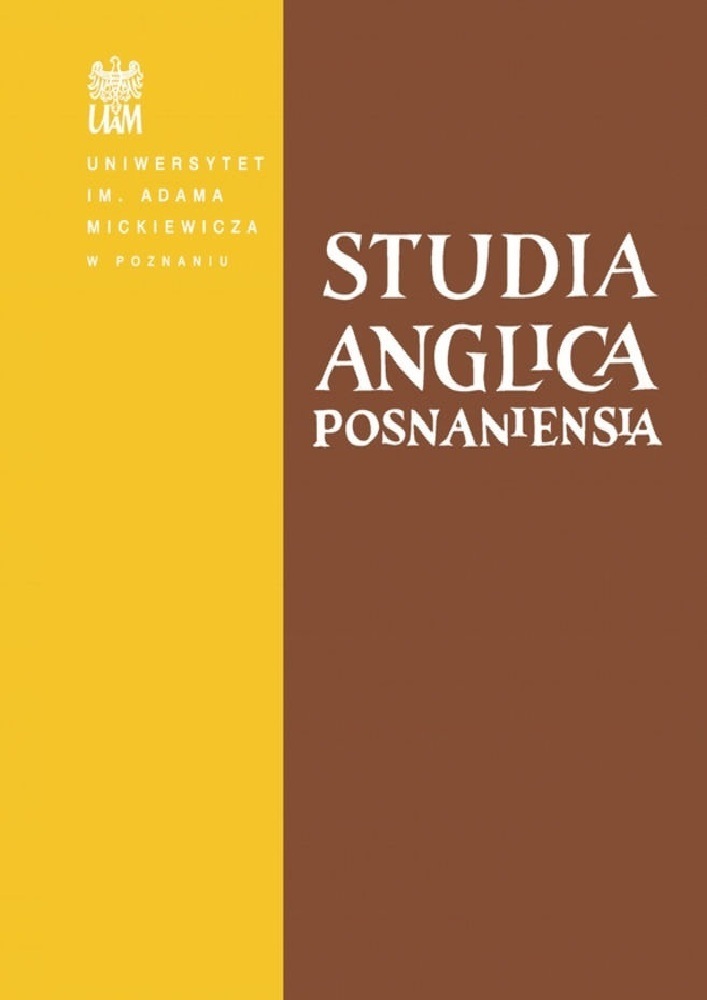Abstract
Australia features in numerous Victorian novels either as a place of exile or a land of new opportunities, perhaps the most memorable image of the country having been presented in Charles Dickens’s Great Expectations (1861). Anthony Trollope’s writing, however, offers a much more extensive and complex presentation of Australian life as seen by a Victorian English gentleman. In his Australian fictions, including Harry Heathcote of Gangoil (1874), Catherine Carmichael (1878), and John Caldigate (1879), he presents Australia both as a land of new opportunities and as a place where social hierarchy as it is known in England is upturned and social boundaries either disregarded or drawn along different lines. The present article is concerned with the ways in which Trollope’s John Caldigate represents differences in the structure of English and Australian society, stressing the latter’s lack of a clear class hierarchy characteristic of social organisation “back home”. The society of Australia is presented as extremely plastic and mobile - both in terms of space and structure. Consequently, it can hardly be contained within a stiffly defined hierarchy, and it seems to defy the rules of social organisation that are accepted as natural and obvious in England. In Trollope’s fiction success in Australia depends to a large extent on hard work, ability to withstand the hardships of life with no luxuries, and thrift, and thus on personal virtues, but the author nevertheless suggests that it is defined solely by economic capital at the cost of cultural capital, so significant in England.
References
Dickens, Charles. 1861. Great expectations. London: Chapman & Hall.
Trollope, Anthony. 1987 [1873]. Australia, 2 vols. Gloucester: Alan Sutton.
Trollope, Anthony. 1990 [1872]. The Eustace diamonds. (Edited with and introduction by W. J. McCormack.) Oxford & New York: Oxford University Press.
Trollope, Anthony. 1992 [1874]. Harry Heathcote of Gangoil. A tale of Australian bushlife. (Edited with an introduction by P. D. Edwards.) Oxford & New York: Oxford University Press.
Trollope, Anthony. 1993 [1879]. John Caldigate. (Edited with an introduction by N. John Hall.) Oxford & New York: Oxford University Press.
Trollope, Antony. 1995 [1878]. Catherine Carmichael: Or, three years running. In Anthony Trollope, Later short stories (Edited with an introduction and notes by John Sutherland), 492-514. Oxford & New York: Oxford University Press.
Trollope, Anthony. 1999 [1883]. An autobiography. (Edited by Michael Sadler & Frederick Page.)Oxford: Oxford University Press.
Birns, Nicholas. 1996. The Empire turned upside down: The colonial fictions of Anthony Trollope. ARIEL: A Review of International English Literature 27(3). 7-23.
Birns, Nicholas. 2011. Trollope and the Antipodes. In Carolyn Dever & Lisa Niles (eds.), The Cambridge companion to Anthony Trollope, 181-195. Cambridge: Cambridge University Press. DOI: 10.1017/CCOL9780521886369.015
Bourdieu, Pierre. 1990 [1980]. The logics of practice. (Translated by Richard Nice.) Stanford, CA: Stanford University Press.
Durrey, Jill Felicity. 2007. Modern issues: Anthony Trollope and Australia. Antipodes 21(2). 170-176.
Elliott, Dorice Williams. 2011. Unsettled status in Australian settler novels. In Tamara S. Wagner (ed.), Victorian settler narratives: Emigrants, cosmopolitans and returnees in nineteenth-century literature, 23-40. London & New York: Routledge.
Hall, N. John. 1993. Introduction. In Anthony Trollope 1993 [1879]. John Caldigate, vii-xix. Oxford & New York: Oxford University Press.
Langland, Elizabeth. 1995. Nobody’s angels: Middle-class women and domestic ideology in Victorian culture. Ithaca, NY: Cornell University Press.
Myers, Janet C. 2009. Antipodal England: Emigration and portable domesticity in the Victorian imagination. New York, NY: State University of New York Press.
Phillips, Arthur A. 1958. The Australian tradition: Studies in colonial culture. Melbourne: Cheshire.
Pierce, Peter (ed.). 2009. The Cambridge history of Australian literature. Cambridge: Cambridge University Press. DOI: 10.1017/CHOL9780521881654
Stewart, Ken. 2009. Britain’s Australia. In Peter Pierce (ed.), The Cambridge history of Australian literature, 7-33. Cambridge: Cambridge University Press. DOI: 10.1017/CHOL9780521881654.003
Taylor, Jenny Bourne. 2011. Trollope and the sensation novel. In Carolyn Dever & Lisa Niles (eds.), The Cambridge companion to Anthony Trollope, 85-98. Cambridge: Cambridge University Press. DOI: 10.1017/CCOL9780521886369.008
Setecka, Agnieszka. 2013. Vanishing realities. Social significance of material culture in Victorian novelistic discourse. Poznań: Wydawnictwo Naukowe UAM.
Unsigned notice 1969 [1879]. In Donald Smalley (ed.), Anthony Trollope: The critical heritage, 456. London & New York: Routledge.
Wagner, Tamara S. 2011. Settling back in at home: Impostors and imperial panic in Victorian narratives. In Tamara S. Wagner (ed.), Victorian settler narratives: Emigrants, cosmopolitans and returnees in nineteenth-century literature, 111-128. London & New York: Routledge.
